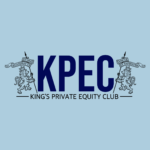
By Sean Sukonniks, Research Analyst at King’s Private Equity Club
Startup accelerators are a critical piece of startup infrastructure all over the world, especially – in the United States. People go there to create MVPs, establish valuable connections, pivot, and find that missing piece of a puzzle that one needs to solve to create a new unicorn. Y Combinator – a 3-month program in the San Francisco Bay Area – is just that, but on steroids. Combining the brightest minds in the world of modern technology with the networking capabilities provided by the best angel investors and mentors that there are, YC is a pinnacle of what startup accelerator programs can achieve.
How it all started
2005. Not the most crucial year by any stretch of the imagination – Hurricane Katrina and Madagascar are the only things of serious notice back them. But there’s one thing, one small company that has just started working. Two engineers, a book author and an MIT professor have released the first 11 of their “kids” into the world – a Y Combinator accelerator has produced its first batch of startups. Back then, it didn’t create much of a rejoinder in the public space, be it in a VC space or the American startup scene.
What people didn’t know is that these eleven companies, led by Reddit, were about to become a precedent that a startup acceleration model not only has a chance to survive but also to become highly profitable, leading to 3.500 companies from YC amassing whooping $400bn valuations over 17 years. Not to forget that YC owns or has owned at least 7% of each of those companies – as a rule, YC invests $125.000 for a 7% piece of equity in each company that goes through their accelerator. Y Combinator is a lot about the location. A particular trend can be seen in terms of a choice of location – the first two programmes were launched in Cambridge, Mass – home of MIT and Harvard universities -and one – in Mountain View, California. This city is a legend in the startup realm, as it hosts HQs of such giants of the industry as Alphabet (Google), Microsoft, LinkedIn and Samsung. Later, a Massachusetts program was abandoned due to financial issues, and a company carried on in a Silicon Valley location, where it resides to this day.
Getting into the numbers
As mentioned earlier, the first group of YC startups consisted of just 11 companies. While a majority of them didn’t end up costing billions, founders still are very much in the game, from being the CEO of the YC itself to founding Twitch. Today YC often, not to say frequently, means a path to success for a wide array of people of all nationalities, ethnicities and genders. As per YC 2021 batch report, 47 countries were represented, with India, Canada and Mexico being the most popular ones after the U.S. itself. Only 43% of the founders were white, which puts minority ethnicities way above the industry average with 17% Asian and 15% LatinX founders. These are some convincing numbers on behalf of Geoff Ralston and his coworkers that open the doors for the large groups of underrepresented founders worldwide and in North America.
It’s also important to remember that YC puts some serious money into the business to keep projects afloat at the early stages – $125k for each of 377 companies in the last batch equals a bit more than $47m – a solid Series B or even Series C round for a company. While in the early days, there were many disbelievers in the idea of dispersion of money to such a large amount of companies, the strategy has proven to be working with a solid amount of companies from the Y Combinator becoming successful or even dominant in their fields. While money surely has played a role here, the critical piece of support that upcoming founders are getting at an accelerator are connections and mentorship – more on that in the next block.
“Mentorship is the key attribute that divides accelerator founders from others”
We had a chance to talk to a representative of the YC20 batch of startups – an early employee who asked not to disclose his name but still gave some valuable insights into the world of Y Combinator. Underneath is the part of an interview that can be published without damaging its author:
“How did YC help your company “company-wise”? How did it help in terms of growth?”
“So, this is from others YC founders that say it, but a few YC founders mention that as long as you are in the YC branding, investors won’t reject a meeting with you. They might not necessarily invest in you, but they would definitely meet. That’s a really good foot in the door if it makes sense because you see the type of companies that YC has backed, right? Twitch, Reddit, Coinbase – all these are big companies right now, so it is a branding of a certain calibre that YC companies have, and that can bring investors, VCs on board easier if it makes sense.”
“Yes, of course, it does. And do you think that companies, especially in the U.S. are able to succeed without accelerators/incubators? To scale up to the same measure as, say, Twitch?”
“Great question. I’d think that it’s hard. I wouldn’t say it’s impossible, but organisations that help democratise access to networking and mentorship help a lot with that. For example, I volunteered with Startup Boston, which is a volunteer-driven organisation that helps founders in the New England area of the U.S. (Mostly Massachusetts and New York). The good thing about YC itself is getting “checkmarks” – each week you come and show what you have done, and they give you assessments and show how can you better your product. And it’s so many batches right – the company has probably seen thousands of products and startups. Incubators, on the other hand, are usually run equity-free by governments, schools or universities that help people grow rather than seek equity and financial fulfilment, so that definitely helps founders as well.”
“Do you feel that the culture of startup incubators and accelerators in the U.S. differs a lot from Canada, Singapore, Israel and other places?”
“I guess the good thing about the U.S. in itself is that it is essentially the place to go for startups, right? Before COVID YC was held in San Francisco in person and that kind of space and climate in which people and investors are literally on one street – your Uber, Tesla and others. The exchange of ideas and rubbing off each other in terms of sharing ideas and deal flow is the added benefit for the area. Also lots of VC funds – Accel, Sequoia, A16Z. Because of COVID we currently switch to other hubs – Toronto, Austin and others, especially due to the upsides of remote working.”
“Don’t you feel that YC would lose its importance as a central hub for companies + founders, as big companies are moving out of San Francisco?”
“I guess that VCs are increasing their scope and it becomes easier to get on their radars – you don’t have to be an ex-Amazon or ex-Uber anymore to build a large startup. You see smaller VC funds doing scalping in different regions with scouts all over the world, so it gives us more opportunity to benefit remotely, especially through zoom?”
“There’s a common concept that accelerators give you more of a “crunch” experience and less theoretical understanding of what you are doing in these 12 weeks. You just run towards MVP, but don’t get better at what you’re doing. How do you feel about it?”
“I strongly think that YC is not just a 12-week process, as it also involves a large afterwards process -we’ve got a network where we can raise questions to investors, and usually the community is built between founders, disregarding the location. Generally, people are willing to help. In 12 weeks it is definitely important to find your product – sometimes, people come to YC without a product at all. What’s important is that it extends beyond the 12 weeks and the weighting of “oh, you’re from YC” that comes after the program.”
To conclude, while Y Combinator has quite a few controversies (such as allegations of them being ageist), it still is an apex of the heights that currently are startup accelerators. Founders sought the opportunity to network and raise capital long ago, and they will in the future, and as things stand, YC remains a key hub for that.
